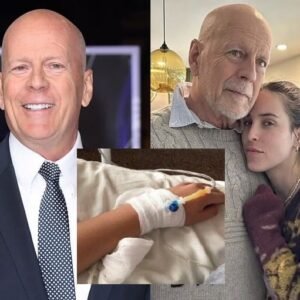In a recent interview, Brad Pitt revealed that he has prosopagnosia, or “facial blindness,” a rare neurological condition. Symptoms include difficulty recognizing faces, which can vary in severity among individuals. Despite no link to learning disabilities or memory loss, some may experience chronic anxiety or depression due to social challenges.
Prosopagnosia can be congenital or acquired, with some cases running in families. Congenital prosopagnosia lacks visible brain abnormalities, making its exact cause uncertain. Acquired prosopagnosia may result from brain injuries or conditions like Alzheimer’s.
While no cure exists, individuals may learn to differentiate people through alternative cues like voice or gait. Diagnosis involves memory and face recognition tests, with neurologists ensuring it’s not a symptom of a more severe condition.
Many, like Pitt, may never receive a formal diagnosis, as prosopagnosia’s challenges are common. Despite its debilitating effects on some, others manage to cope with its social complexities.
It was heartbreaking to hear that Brad Pitt is struggling with prosopagnosia, a rare condition that affects his ability to recognize faces. This neurological disorder can have a significant impact on an individual’s social interactions and daily life.
Prosopagnosia can manifest in different ways and can be challenging to diagnose. Some individuals may not even be aware that they have it, as they have developed coping mechanisms to navigate social situations. For Brad Pitt, this revelation sheds light on the struggles he may have faced in his personal and professional life.
It’s important to understand that prosopagnosia is not linked to intelligence or memory loss. It is simply a difficulty in processing facial information, which can lead to social anxiety and depression in some cases. The fact that Brad Pitt has been able to manage this condition while thriving in the spotlight is a testament to his strength and resilience.
While there is no cure for prosopagnosia, there are ways to mitigate its effects. Some individuals may rely on alternative cues like voice or gait to identify people, while others may seek out specialized therapy to improve their face recognition skills. It’s crucial for individuals with prosopagnosia to seek support and understanding from their loved ones and healthcare providers.
Brad Pitt’s openness about his struggles with prosopagnosia is a reminder that everyone faces challenges, no matter how successful or famous they may be. It’s important to show compassion and empathy towards those dealing with invisible disabilities, and to create a more inclusive and understanding society for all.
We applaud Brad Pitt for sharing his story and hope that it will raise awareness about prosopagnosia and the challenges faced by those living with this condition. Let’s continue to support and uplift each other, regardless of the obstacles we may face.






